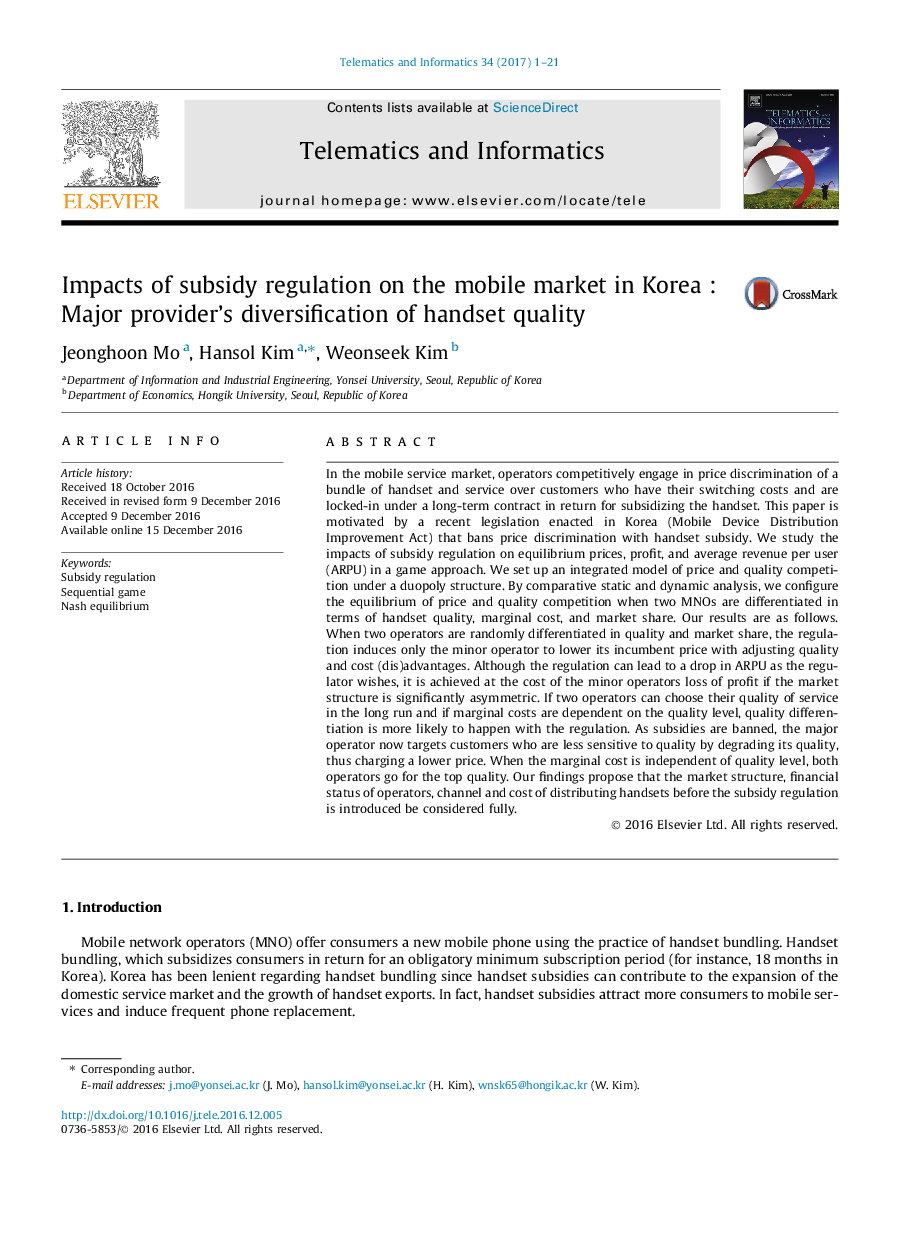| Article ID | Journal | Published Year | Pages | File Type |
|---|---|---|---|---|
| 4957709 | Telematics and Informatics | 2017 | 21 Pages |
Abstract
In the mobile service market, operators competitively engage in price discrimination of a bundle of handset and service over customers who have their switching costs and are locked-in under a long-term contract in return for subsidizing the handset. This paper is motivated by a recent legislation enacted in Korea (Mobile Device Distribution Improvement Act) that bans price discrimination with handset subsidy. We study the impacts of subsidy regulation on equilibrium prices, profit, and average revenue per user (ARPU) in a game approach. We set up an integrated model of price and quality competition under a duopoly structure. By comparative static and dynamic analysis, we configure the equilibrium of price and quality competition when two MNOs are differentiated in terms of handset quality, marginal cost, and market share. Our results are as follows. When two operators are randomly differentiated in quality and market share, the regulation induces only the minor operator to lower its incumbent price with adjusting quality and cost (dis)advantages. Although the regulation can lead to a drop in ARPU as the regulator wishes, it is achieved at the cost of the minor operators loss of profit if the market structure is significantly asymmetric. If two operators can choose their quality of service in the long run and if marginal costs are dependent on the quality level, quality differentiation is more likely to happen with the regulation. As subsidies are banned, the major operator now targets customers who are less sensitive to quality by degrading its quality, thus charging a lower price. When the marginal cost is independent of quality level, both operators go for the top quality. Our findings propose that the market structure, financial status of operators, channel and cost of distributing handsets before the subsidy regulation is introduced be considered fully.
Keywords
Related Topics
Physical Sciences and Engineering
Computer Science
Computer Networks and Communications
Authors
Jeonghoon Mo, Hansol Kim, Weonseek Kim,
